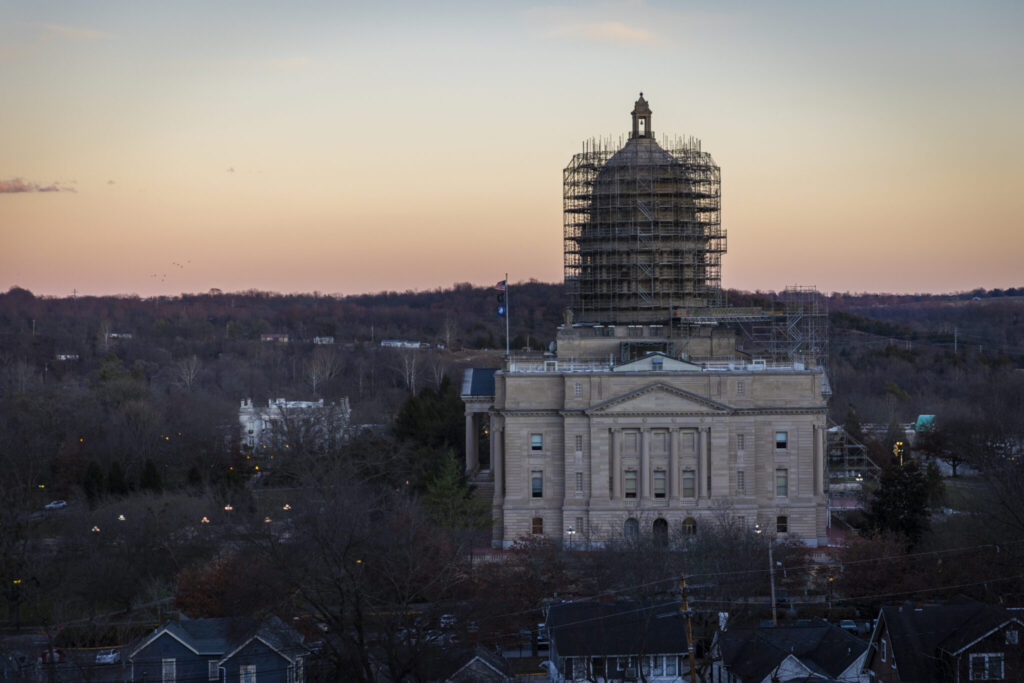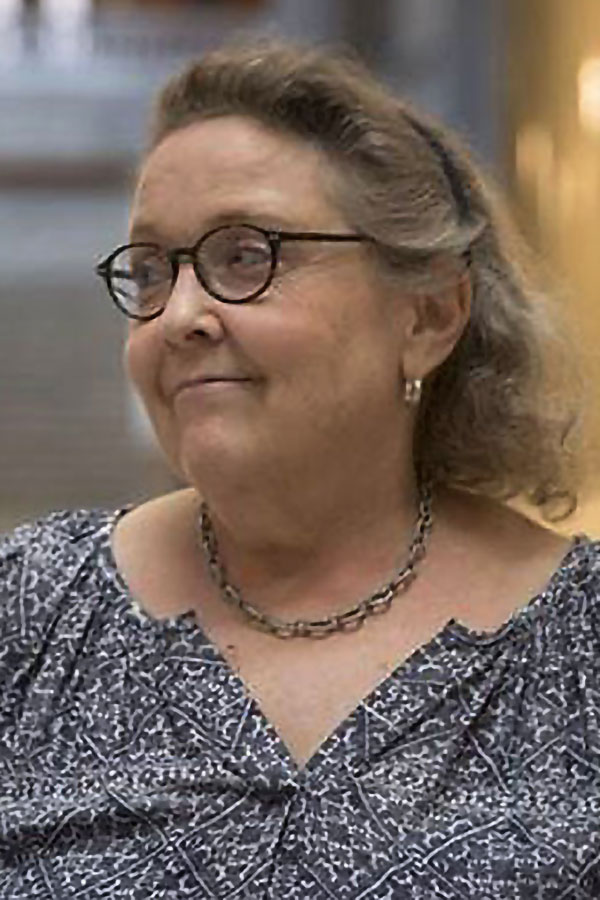FRANKFORT—A newly-filed bill one expert said “would eviscerate access to public records” in Kentucky is drawing fire from news organizations and open records advocates even as its sponsor says such claims are untrue and overblown.

“Access by the public to disclosable public records will not be hindered in the least,” Rep. John Hodgson, R-Fisherville, said in an email. “Every record that is disclosable now remains disclosable.”
But critics fiercely attacked House Bill 509, filed Monday and co-sponsored by House Speaker David Osborne, R-Prospect, and Rep. Jason Nemes, R-Middletown.

HB 509 would destroy what has long been a model law when it comes to public access to government records, the Kentucky Press Association said in a statement Wednesday.
“This bill can only be described as an all-out assault on transparency, and any person that cares about the power of the people to know what their government is up to must oppose this bill,” it said. Michael Abate
First Amendment lawyer Michael Abate, who represents Kentucky news organizations and the press association, blasted HB 509 in comments on X, formerly Twitter.
“Louisville citizens/media: this is not a drill. HB 509 would eviscerate access to public records in the Commonwealth, and it has the support of House leadership,” Abate said. “Claims that it puts nothing new off limits are dead wrong.”
In an interview, Abate said Hodgson’s claim the bill doesn’t change access to public records is false
“This notion that it doesn’t change anything is incredibly dangerous,” he said. “That is an incorrect statement.

Amye Bensenhaver, co-director of the Kentucky Open Government Coalition, described HB 509 in an email as a major attack on the open records law. Amye Bensenhaver
“The annual legislative assault on Kentucky’s open government laws has commenced in earnest, but this year with a vengeance,” said Bensenhaver, a former Kentucky assistant attorney general who wrote open records opinions. “It is no exaggeration to suggest that the future of the Kentucky Open Records Act is at stake.”
HB 509 would:
Place new limits on what the law defines as a public record and exempt many items critics say are now subject to disclosure.
Hodgson maintains it would not change access to such material but critics said the wording of HB 509 could block access to items such as personnel records, emails, police records and donations to public agencies such as university foundations.
‘It narrowly redefines public records in a way that puts off limits the things people seek every single day,” Abate said.
The press association said HB 509 would “replace a well-functioning system with chaos and confusion.”
Require the executive branch to provide all employees with state emails and require them to use them for state business. Such emails would be subject to open records requests.
“With this process in place, the employees’ personal privacy on their devices should be shielded from public disclosure,” Hodgson said.
But the press association said HB 509 creates “a glaring loophole” by then adding protections for private devices, such as cell phones or email accounts from public disclosure even if used to conduct or discuss state business.
“Indeed, board members or commissioners could flagrantly violate the Open Meetings Act by conducting their substantive discussions by email or text, and reaching consensus on how to proceed, and the evidence of those violations would be completely off limits to the public because they were not done on ‘government’ devices,” the press association said.
Bar disclosure of preliminary drafts, discussions, or recommendations regarding official actions that now are subject to disclosure once a final action is taken.
For example, the state now must disclose all records in a personnel case once the matter is closed.
The press association said that could “massively erode” the public’s access to information about areas including misconduct by state employees and how the state handles allegations.
It cited as an example the 2011 death of Amy Dye, 9, who was beaten to death in her adoptive home in Todd County. Her death sparked extensive press coverage into the role of the Cabinet for Health and Family Services, which had placed her in the home.
The cabinet first denied having records, then refused to release any of its voluminous records in the case — which included extensive allegations of abuse it had failed to investigate or substantiate — until ordered to do so by a court. Disclosures in the case helped result in a landmark open records ruling that the public has access to state records of child abuse and neglect that results in the death or serious injury of a child.
HB 509 would undermine vital access to such records created by the court decision, the press association said.
“It is exactly what happened when the Cabinet for Health and Family Services falsely denied possessing ‘public records’ related to the tragic death of Amye Dye, a child under its supervision,” it said. “The resulting litigation was one of the most important open records cases in Kentucky history, and led to substantial sanctions against the agency and important legal reforms to the child welfare system.”
Personal devices, public business
The provision regarding state emails and exempting personal electronic communications of employees drew particular concern.
Hodgson said the intent is to ensure access to public information but protect privacy of individuals.
“There has been some debate for years about whether personal devices should be exempt from (open records),” he said in an email.

Further, he said, a pending state Supreme Court case could force employees to disclose such information, saying it “may put all executive branch employees at risk for losing their personal privacy regarding text messages and emails on their personal devices.”
The email provision drew the support of Gov. Andy Beshear.
“As the former attorney general, the governor understands the importance of open records laws and transparency in government,” his spokeswoman, Crystal Staley, said in an email. “The proposed law requires everyone doing state business to have a state email or other means of official communication, and that they must conduct their official business using it. That is a step forward that addresses recent challenges and should be acknowledged.”
Staley did not address other provisions of HB 509.
Abate said he doesn’t dispute that state employees should have work emails to use for state business.
“That’s actually a good idea,” he said.
But the bill also provides new protections shielding government workers or officials from having to provide communications from personal emails or phones even when they involve state business—which would lead to abuse and secrecy, he said,
“It’s going to be a disaster,” he said.
This article is republished under a Creative Commons license from Kentucky Lantern, which is part of States Newsroom, a network of news bureaus supported by grants and a coalition of donors as a 501c(3) public charity. Kentucky Lantern maintains editorial independence. Contact Editor Jamie Lucke for questions: info@kentuckylantern.com. Follow Kentucky Lantern on Facebook and Twitter.
Deborah Yetter is an independent journalist who previously worked for 38 years for The Courier Journal, where she focused on child welfare and health and human services. She lives in Louisville and has a master's degree in journalism from Northwestern University and a bachelor's degree from the University of Louisville.






